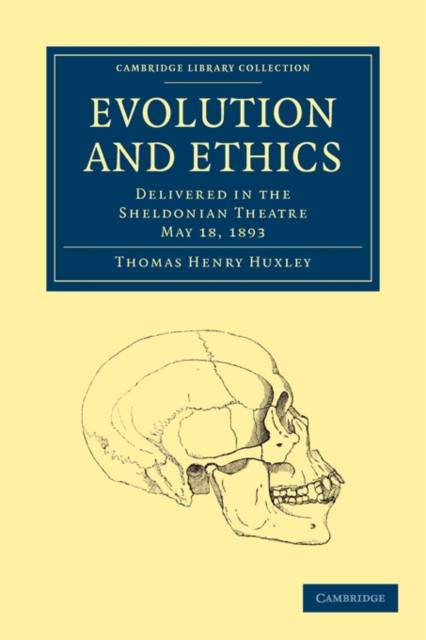
- Afhalen na 1 uur in een winkel met voorraad
- Gratis thuislevering in België vanaf € 30
- Ruim aanbod met 7 miljoen producten
- Afhalen na 1 uur in een winkel met voorraad
- Gratis thuislevering in België vanaf € 30
- Ruim aanbod met 7 miljoen producten
Zoeken
€ 22,45
+ 44 punten
Uitvoering
Omschrijving
In 1893, the biologist and educator Thomas Henry Huxley (1825-95) published the text of a public lecture on ethics and evolutionary theory. He opens Evolution and Ethics with the story of Jack and the Bean Stalk as a metaphor for cyclical evolution--the small seed that becomes a mature plant. Huxley then takes the reader on a journey through two culturally different belief systems Buddhism and Greek intellectual thought -- to illustrate human attempts to understand the 'cosmic process'. Huxley outlines the growth of differing concepts of justice as populations became more organised, and how different societies dealt with the knowledge that nature is unjust. Huxley abhors the harsh applications of Darwin's work to society and decries the 'gladiatorial theory of existence'. Arguing against the concept of social Darwinism, Huxley proposes that ethical behaviour must counteract the painful effects of the 'struggle for survival' in order for society to progress.
Specificaties
Betrokkenen
- Auteur(s):
- Uitgeverij:
Inhoud
- Aantal bladzijden:
- 68
- Taal:
- Engels
- Reeks:
Eigenschappen
- Productcode (EAN):
- 9781108004558
- Verschijningsdatum:
- 24/09/2009
- Uitvoering:
- Paperback
- Formaat:
- Trade paperback (VS)
- Afmetingen:
- 152 mm x 229 mm
- Gewicht:
- 113 g

Alleen bij Standaard Boekhandel
+ 44 punten op je klantenkaart van Standaard Boekhandel
Beoordelingen
We publiceren alleen reviews die voldoen aan de voorwaarden voor reviews. Bekijk onze voorwaarden voor reviews.







